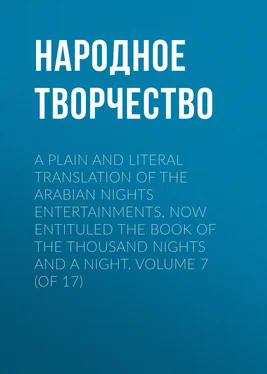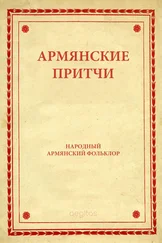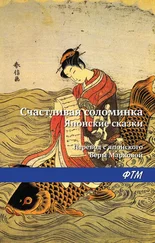Mohammed’s companions (Asháb), numbering some five hundred, were divided into two orders, the Muhájirin (fugitives) or Meccans who accompanied the Apostle to Al-Medinah (Pilgrimage ii. 138) and the Ansár (Auxiliaries) or Medinites who invited him to their city and lent him zealous aid (Ibid ii. 130). The terms constantly occur in Arab history.
The “Mosque of the Troops,” also called Al-Fath (victory), the largest of the “Four Mosques:” it is still a place of pious visitation where prayer is granted. Koran, chapt. xxxiii., and Pilgrimage ii. 325.
Arab. “Al-Wars,” with two meanings. The Alfáz Adwiyah gives it = Kurkum, curcuma, turmeric, safran d’Inde; but popular usage assigns it to Usfur, Kurtum or safflower ( carthamus tinctorius ). I saw the shrub growing all about Harar which exports it, and it is plentiful in Al-Yaman (Niebuhr, p. 133), where women affect it to stain the skin a light yellow and remove freckles: it is also an internal remedy in leprosy. But the main use is that of a dye, and the Tob stained with Wars is almost universal in some parts of Arabia. Sonnini (p. 510) describes it at length and says that Europeans in Egypt call it “Parrot-seeds” because the bird loves it, and the Levant trader “Saffrenum.”
Two men of the great ’Anazah race went forth to gather Karaz, the fruit of the Sant ( Mimosa Nilotica ) both used for tanning, and never returned. Hence the proverb which is obsolete in conversation. See Burckhardt, Prov. 659: where it takes the place of “ ad Graecas Kalendas .”
Name of a desert (Mafázah) and a settlement on the Euphrates’ bank between Basrah and the site of old Kufah near Kerbela; the well known visitation place in Babylonian Irak.
Of the Banu Sulaym tribe; the adjective is Sulami not Sulaymi.
Arab. “Amám-ak” = before thee (in space); from the same root as Imám = antistes, leader of prayer; and conducing to perpetual puns, e.g. “You are Imám-i (my leader) and therefore should be Amám-i” (in advance of me).
He was angry, as presently appears, because he had heard of certain love passages between the two and this in Arabia is a dishonour to the family.
Euphemy for “my daughter.”
The Badawin call a sound dollar “Kirsh hajar” or “Riyal hajar” (a stone dollar; but the word is spelt with the greater h ).
Arab. Burdah and Habárah. The former often translated mantle is a thick woollen stuff, brown or gray, woven oblong and used like a plaid by day and by night. Mohammed’s Burdah woven in his Harem and given to the poet, Ka’ab, was 7½ ft. long by 4½: it is still in the upper Serraglio of Stambul. In early days the stuff was mostly striped; now it is either plain or with lines so narrow that it looks like one colour. The Habarah is a Burd made in Al-Yaman and not to be confounded with the Egyptian mantilla of like name (Lane, M. E. chapt. iii).
Every Eastern city has its special title. Al-Medinah is entitled “Al-Munawwarah” (the Illumined) from the blinding light which surrounds the Prophet’s tomb and which does not show to eyes profane (Pilgrimage ii. 3). I presume that the idea arose from the huge lamps of “The Garden.” I have noted that Mohammed’s coffin suspended by magnets is an idea unknown to Moslems, but we find the fancy in Al-Harawi related of St. Peter, “Simon Cephas (the rock) is in the City of Great Rome, in its largest church within a silver ark hanging by chains from the ceiling.” (Lee, Ibn Batutah, p. 161).
Here the fillets are hung instead of the normal rag-strips to denote an honoured tomb. Lane (iii. 242) and many others are puzzled about the use of these articles. In many cases they are suspended to trees in order to transfer sickness from the body to the tree and whoever shall touch it. The Sawáhílí people term such articles a Keti (seat or vehicle) for the mysterious haunter of the tree who prefers occupying it to the patient’s person. Briefly the custom still popular throughout Arabia, is African and Fetish.
Al-Mas’údí (chapt. xcv.), mentions a Hind bint Asmá and tells a facetious story of her and the “enemy of Allah,” the poet Jarír.
Here the old Shiah hatred of the energetic conqueror of Oman crops out again. Hind’s song is that of Maysum concerning her husband Mu’áwiyah which Mrs. Godfrey Clark (’Ilâm-en-Nâs, p. 108) thus translates:—
A hut that the winds make tremble
Is dearer to me than a noble palace;
And a dish of crumbs on the floor of my home
Is dearer to me than a varied feast;
And the soughing of the breeze through every crevice
Is dearer to me than the beating of drums.
Compare with Dr. Carlyle’s No. X.:—
The russet suit of camel’s hair
With spirits light and eye serene
Is dearer to my bosom far
Than all the trappings of a queen, etc. etc.
And with mine (Pilgrimage iii. 262):—
O take these purple robes away,
Give back my cloak of camel’s hair
And bear me from this towering pile
To where the black tents flap i’ the air, etc. etc.
Al-Hajjaj’s tribal name was Al-Thakifi or descendant of Thakíf. According to Al-Mas’udi, he was son of Faríghah (the tall Beauty) by Yúsuf bin Ukayl the Thakafite and vint au monde tout difforme avec l’anus obstrué. As he refused the breast, Satan, in human form, advised suckling him with the blood of two black kids, a black buck-goat and a black snake; which had the desired effect.
Trébutien, iii. 465, translates these sayings into Italian.
Making him a “Kawwád” = leader, i.e. pimp; a true piece of feminine spite. But the Caliph prized Al-Hajjaj too highly to treat him as in the text.
i.e. “The overflowing,” with benefits; on account of his generosity.
The seventh Ommiade A. H. 96–99 (715–719). He died of his fine appetite after eating at a sitting a lamb, six fowls, seventy pomegranates, and 11¼ lbs. of currants. He was also proud of his youth and beauty and was wont to say, “Mohammed was the Apostle and Abu Bakr witness to the Truth; Omar the Discriminator and Othman the Bashful, Mu’awiyah the Mild and Yazid the Patient; Abd al-Malik the Administrator and Walid the Tyrant; but I am the Young King!”
Arab. Al-Jazírah, “the Island;” name of the region and the capital.
i.e. “Repairer of the Slips of the Generous,” an evasive reply, which of course did not deceive the questioner.












